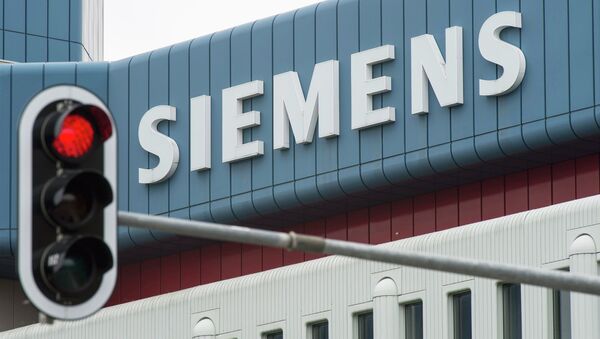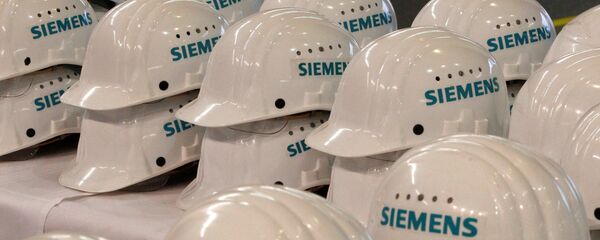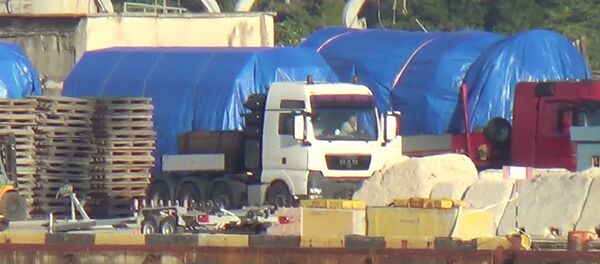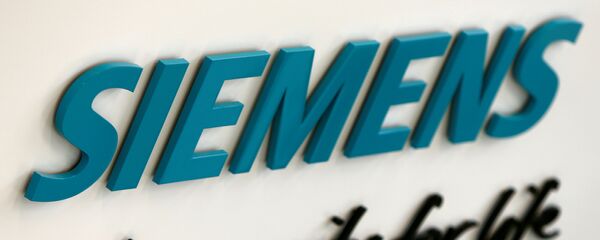The company has offered to buy back the turbines from its Russian counterpart, that it says were illegally moved to Crimea, and annul the contract.
Siemens will also suspend power equipment supplies to Russian state firms to devise new control measures, the company said in a statement on Friday.
Moreover, Siemens will exit its minority stake in the Russian power plant product and service joint venture Interautomatika AG.
Roman Tkachuk, a senior analyst at the investment company Alpari, told Radio Sputnik that the measures taken by Siemens would have a negative effect on the company.
"Siemens just struck an attitude. One of the possible scenarios is that the company will stop working in Russia. But this would be negative both for Russia and Siemens. Russia is an important and lucrative market generating billions of euros a year. Siemens has been working in Russia for a long time," Tkachuk said.
"It is still unclear what fines Siemens would face in the European Union. Moreover, we don’t know the terms of the contracts between Siemens and Russian companies in the event of an emergency situation. Possibly, there will be lawsuits. Siemens doesn’t want to quarrel with European regulators. At the same time, the company doesn’t want to lose the Russian market. I think that such a pause may last for several months," he said.
At the same time, the expert expressed hope that market laws and business interests will finally prevail and Siemens will resume working with Russia "already by next year."
Igor Klimov, CEO of the Russian consulting company Acuris, said that if Siemens decided to end medical equipment supplies to Russia the niche in the Russian market would be quickly filled by other companies.
"If Siemens leaves the Russian market of medical equipment there are such companies like Philips, General Electric and Hitachi. In fact, if decided so, they [Siemens] would lose the market. But I don’t think that the pragmatic German businessmen would make such a reckless move," Klimov told Sputnik.
In early July, Reuters reported that Russia delivered turbines produced by Siemens to Crimea despite EU sanctions that forbid EU companies to supply the region with energy technology.
Following Crimea's reunification with Russia as a result of a referendum in 2014, the European Union introduced several rounds of political and economic sanctions against Russia, restricting in particular the flows of EU produced goods and investments to the peninsula. In June 2017, the European Union extended the sanctions for another six months.





